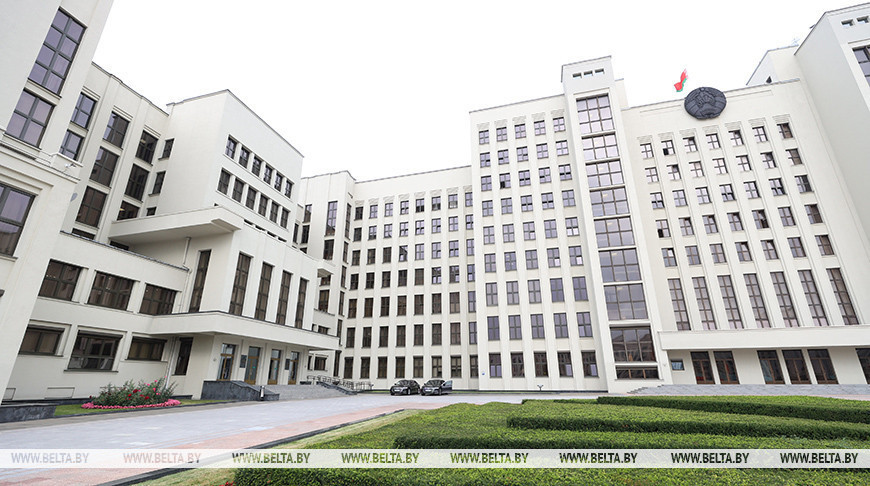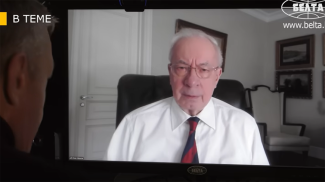
An archive photo
MINSK, 27 May (BelTA) – Government Resolution No. 279 of 20 May 2025 has introduced amendments to the Rules and Regulations of the Council of Ministers of Belarus, BelTA has learned from the National Legal Internet Portal.
The amendments, in particular, give more powers to deputy prime ministers. In line with the new regulations, vice-premiers will be able to independently make decisions on issues within their purview that were submitted to the Council of Ministers, to give instructions and orders, to oversee their implementation, and to make proposals on punishment for those who failed to implement or properly implement these decisions (instructions, orders). Before submitting proposals to the prime minister, vice-premiers will assess the adequacy of measures taken by a head of a government agency they supervise; they will do it on their own or jointly with other officials. They will also make assessments whether issues submitted to the Council of Ministers can be resolved by a government agency independently or jointly with other agencies.
Deputy prime ministers will be able to skip additional correspondence while arranging a discussion of proposals and documents submitted to the Council of Ministers with leadership of government agencies and state-run organizations and persons with extensive managerial experience. They will be able to initiate the revision of these proposals and documents by the Council of Ministers.
In line with the document, draft resolutions on entrepreneurial activity will be subject to approval by the Entrepreneurship Development Council before they are submitted to the Council of Ministers.
In addition, the amendments change the approaches to implementing final provisions of legislative acts.
The resolution entered into force on 24 May 2025.
The amendments, in particular, give more powers to deputy prime ministers. In line with the new regulations, vice-premiers will be able to independently make decisions on issues within their purview that were submitted to the Council of Ministers, to give instructions and orders, to oversee their implementation, and to make proposals on punishment for those who failed to implement or properly implement these decisions (instructions, orders). Before submitting proposals to the prime minister, vice-premiers will assess the adequacy of measures taken by a head of a government agency they supervise; they will do it on their own or jointly with other officials. They will also make assessments whether issues submitted to the Council of Ministers can be resolved by a government agency independently or jointly with other agencies.
Deputy prime ministers will be able to skip additional correspondence while arranging a discussion of proposals and documents submitted to the Council of Ministers with leadership of government agencies and state-run organizations and persons with extensive managerial experience. They will be able to initiate the revision of these proposals and documents by the Council of Ministers.
In line with the document, draft resolutions on entrepreneurial activity will be subject to approval by the Entrepreneurship Development Council before they are submitted to the Council of Ministers.
In addition, the amendments change the approaches to implementing final provisions of legislative acts.
The resolution entered into force on 24 May 2025.













